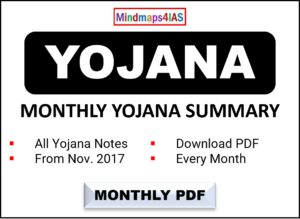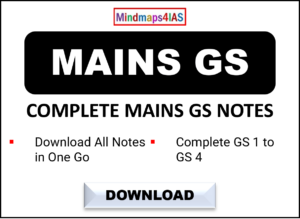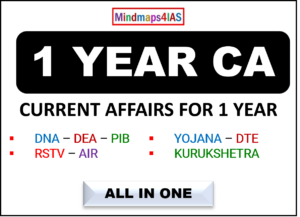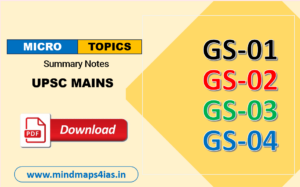Why in the News?
-
Allegations of cash recovery from the residence of a Delhi High Court judge, Justice Yashwant Varma, have resurfaced discussions about judicial appointments and accountability.
-
Vice-President Jagdeep Dhankhar expressed concern over the incident and referenced the National Judicial Appointments Commission (NJAC) Act, which was intended to overhaul judicial appointments but was struck down by the Supreme Court.
Three Judges Cases and the Collegium System
-
First Judges Case (S.P. Gupta vs. Union of India, 1981):
-
A seven-judge bench ruled that the Executive (government) had the final say in the appointment of judges.
-
Held that the proposal for appointment to a High Court could come from any constitutional functionary, not just the Chief Justice of the High Court.
-
Stated that “consultation” in Articles 124 and 217 did not mean “concurrence,” giving the President the power to decide even if they didn’t agree with all consulted parties.
-
This case tilted the balance of power towards the executive for the next 12 years.
-
-
Second Judges Case (Supreme Court Advocates-on-Record Association vs. Union of India, 1993):
-
A nine-judge bench overturned the First Judges Case.
-
Established the “Collegium System” for appointing and transferring judges in the higher judiciary.
-
CJI would make decisions in consultation with the two senior-most judges of the court (forming the collegium).
-
Gave primacy to the judiciary in matters of appointments.
-
-
Third Judges Case (1998 Presidential Reference):
-
President K.R. Narayanan sought the Supreme Court’s opinion on the meaning of “consultation” under Article 143 (advisory jurisdiction).
-
The Supreme Court clarified that the CJI should make recommendations in consultation with his four seniormost colleagues, rather than just two as stated in the Second Judges Case.
-
Stipulated that Supreme Court judges who hailed from the High Court of the proposed candidate should also be consulted.
-
Expanded the collegium to five members.
-
National Judicial Appointments Commission (NJAC) Act
-
Rationale:
-
The collegium system has been criticized for its lack of transparency and absence of an official mechanism or secretariat.
-
Critics have argued it is a closed-door affair without clear eligibility criteria or selection procedures.
-
-
Venkatachaliah Commission Recommendation:
-
The Justice M.N. Venkatachaliah Commission (2000) recommended establishing a National Judicial Appointments Commission (NJAC) to replace the collegium.
-
-
Composition of the NJAC:
-
Chief Justice of India (ex officio Chairperson).
-
Two senior-most Supreme Court Judges (ex officio members).
-
Union Minister of Law and Justice (ex officio member).
-
Two eminent persons from civil society:
-
One nominated by a committee comprising the CJI, Prime Minister, and Leader of the Opposition in the Lok Sabha.
-
One nominated from SC/ST/OBC/minority communities or women.
-
-
-
Repeal of the NJAC Act:
-
The NJAC Act, passed through the 99th Constitutional Amendment Act in 2014, was struck down by the Supreme Court in October 2015.
-
The Court cited threats to judicial independence as the primary reason for overturning the Act.
-
Impeachment of Judges
-
Constitutional Basis:
-
Article 124(4) of the Constitution outlines the process for impeachment of a Supreme Court judge.
-
Article 218 extends the same provisions to High Court judges.
-
-
Grounds for Impeachment:
-
“Proved misbehavior”
-
“Incapacity”
-
-
Process:
-
Parliament (both Lok Sabha and Rajya Sabha) must pass a motion supported by a special majority.
-
Requires at least two-thirds of those “present and voting” in each House, with the number of votes in favor exceeding 50% of the “total membership” of each House.
-
If Parliament passes such a vote, the President issues an order removing the judge.
-
-
Historical Attempts:
-
There have been six attempts to impeach a judge since independence.
-
Committees of inquiry returned a guilty finding in only two cases (Justices Ramaswami and Sen).
-
First Impeachment: Justice V. Ramaswami (1993) on grounds of financial impropriety.
-
Key Terms
-
Collegium System: A system for appointing and transferring judges in the higher judiciary, where the Chief Justice of India and a group of senior judges make recommendations.
-
NJAC: National Judicial Appointments Commission – an attempt to reform the process of judicial appointments.
-
Impeachment: The process by which a legislative body levels charges against a government official.
-
Article 124(4): Lays out the removal procedure for Supreme Court judges.
-
Article 218: Extends the provisions of Article 124(4) to High Court judges.
-
Article 143: Grants the Supreme Court advisory jurisdiction, allowing the President to seek its opinion on matters of public importance.
-
Special Majority: A majority greater than a simple majority, often requiring two-thirds or more of the members present and voting.
















